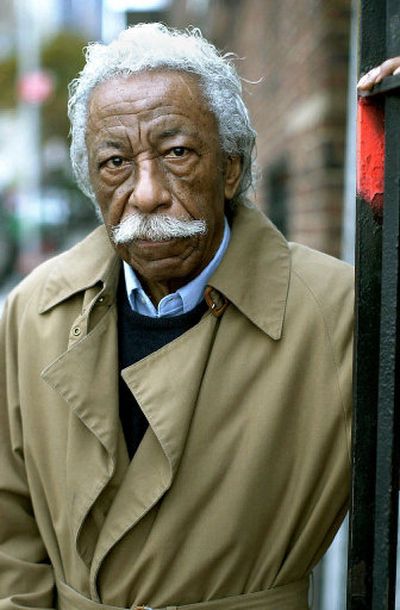Pioneering director Parks, 93, dies

Gordon Parks, who became the first black staff photographer at Life magazine in the late 1940s and broke more ground in Hollywood two decades later as the first black to direct a major studio film, “The Learning Tree,” followed by the landmark black private-eye crime thriller “Shaft,” has died. He was 93.
Parks, who also carved out niches as a novelist, memoirist, poet and composer, died Tuesday in New York.
Although his films widened Parks’ fame, it was as a photographer and social documentarian that he first made his mark as an artist and achieved his greatest acclaim.
From a clapboard house in a segregated town in rural Kansas to a high-rise New York apartment with a panoramic view of the East River, Parks covered a lot of ground on his way to becoming one of America’s foremost photojournalists.
Parks, a self-taught photographer who once played piano in a brothel and worked as a waiter on a railroad dining car, was as equally at ease documenting a chain gang in Alabama as he was photographing Manhattan socialite Gloria Vanderbilt or a Paris fashion model.
As a staff photographer at Life for more than two decades, Parks shot acclaimed photo essays on segregation in the Deep South (1956), the slums of Rio de Janeiro (1961) and the Black Muslims(1963).
Parks had a second successful career as an author, beginning in the late 1940s with two instructional photography manuals. Among his other books are “Shannon,” a historical novel about Irish immigrants; “Gordon Parks: A Poet and His Camera”; “Born Black,” a collection of essays on personalities in the civil rights movement; and three memoirs.
“The Learning Tree,” Parks’ semi-autobiographical novel, became a 1963 bestseller. With support from actor-filmmaker John Cassavetes, Parks was hired by Warner Bros. to write, direct, score and executive-produce the 1969 screen version of “The Learning Tree.”
In 1989, “The Learning Tree” was among the first 25 films honored by the U.S. Library of Congress to be preserved in the National Film Registry.
Parks produced and directed his second film, “Shaft,” the 1971 action-thriller that gave America its first black private-eye hero who became a role model for many young men. Starring Richard Roundtree and featuring Isaac Hayes’ Oscar-winning theme song, “Shaft” was a box-office hit that crossed racial lines.